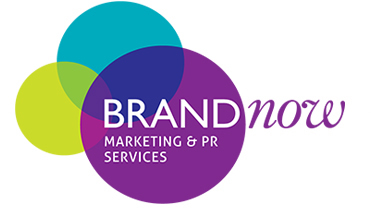
MEDIA Relations is simply defined as your relationship with the
media. If used correctly, it can be one of the most effective ways
of reaching your target audience. It can even change your target
audience's perception of your product, services, practice and policies.
Media is in the business of selling stories to their readers.
So in addition to featuring hard core content on truthful facts
and figures, they are also looking for content that can stimulate,
entertain and interest their readers. As a business owner, your
role is to educate the media about your product or service so
that they are interested in featuring it in a story.
It is crucial for companies to build and manage relationships
with the media to get the exposure that they want. One way is
to maintain regular contact with the reporters who write about
your industry and send them updates on your products or services.
Likewise, reporters also know that they can rely on you
for honest or any in-depth industry or product information you
can provide them with.
Here are some helpful tips in managing a successful relationship
with the media.
1. Know your reporters. Do your research and get to
know the reporters and editors that cover your industry.
Call the publication and enquire or read that publication to see
which writer is covering your industry news. For instance, if
you are pitching a story on a recent medical breakthrough, you
should be contacting the reporter covering medical and health
issues and not a financial reporter. Alternatively, you may also
want to contact the lifestyle reporter by pitching the story from
a lifestyle angle. It is possible to present different angles of
the same story to reporters of different sections of the same
publication or a different publication. Remember your goal is
to maximize the coverage of your product or service. Keep
in mind that if you have offered exclusivity to one publication,
you must honor that or else you risk ruining your
relationship with the media.
2. Offer to make comments or statements about
current news that may be relevant to your products
or services. If you are able to share an insight or expand
on current affairs news, then this is your golden opportunity.
Here is an example: In January this year, the Thai
government embarked on a campaign announcing the
importance of English language in the approaching Asean
Economic Community (AEC) 2015. Wall Street Institute
Thailand, an English language institute, took this opportunity
to announce its new campaign in persuading Thais
to recognize the importance of improving English skills
for AEC. Furthermore, it announced its expansion plans
to build two more language schools and to introduce
specialized courses for using English in professional situations
- all in line with the government's objective.
3. Be a trustworthy and responsive source for media. If
the media knows you are an expert in a certain field and if you
have regularly provided articles and comments to them, they
are most likely to call you for further information. Having you
quoted in their article adds great credibility to you and your
organization. Because the media works on tight deadlines, you
must be able to respond to reporters' queries and provide the
information they want quickly. This is the only chance you have
to build a relationship with them. Ask when their deadline is and
get all the information. Remember that if you have promised to
get back to them, you must do so and follow up.
It takes time to build and cultivate relationships with the
media, and in the same way, it takes time for the media to trust
in you and your credibility. Remember that media relations is not
advertising and you should not attempt to hard sell to reporters.
Offering yourself as a credible source and showing how a
product or service is going to improve or have an impact in daily
life will likely get the media's attention.
Kittima Sethi is a PR Consultant
with Brand Now Co. Ltd., and,
unless she is busy managing her
relations with a multitude of
reporters, she can be contacted at
Kittima@brandnow.asia
|
















 | Newsletter | Brand Now Co., LTD. |Telephone: +662 662 5622 | © Copyright 2016
| Newsletter | Brand Now Co., LTD. |Telephone: +662 662 5622 | © Copyright 2016

